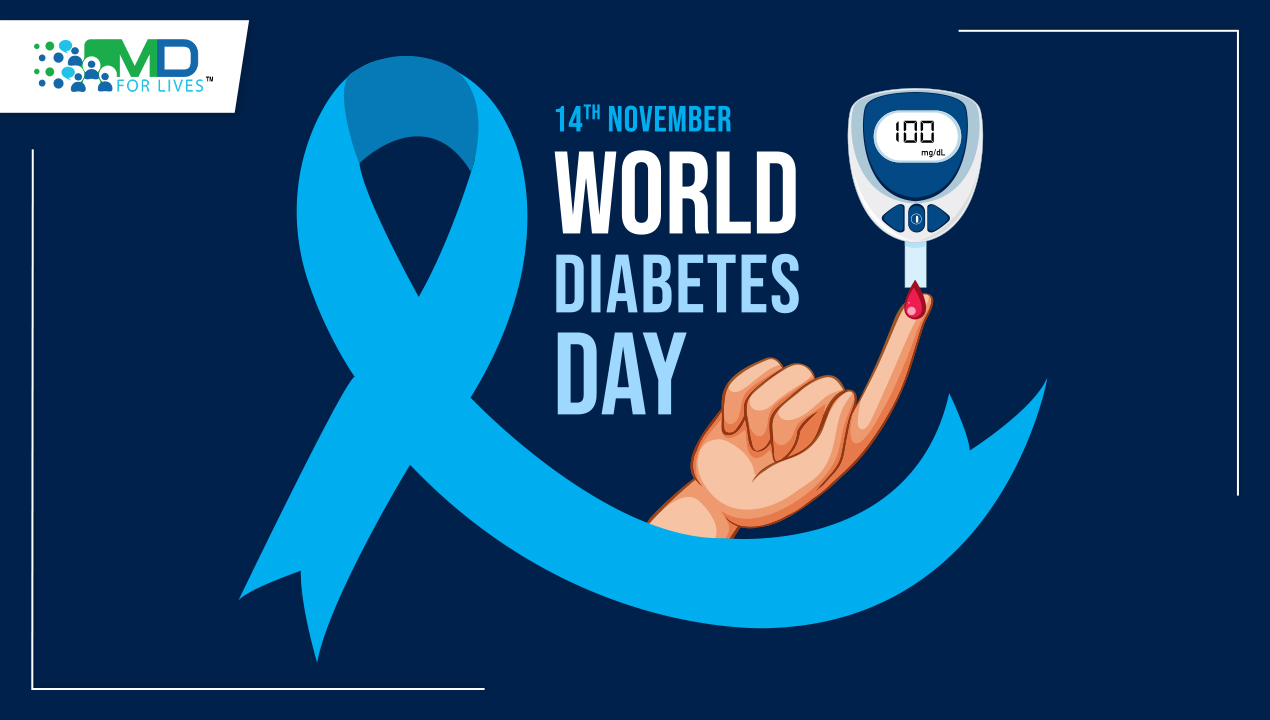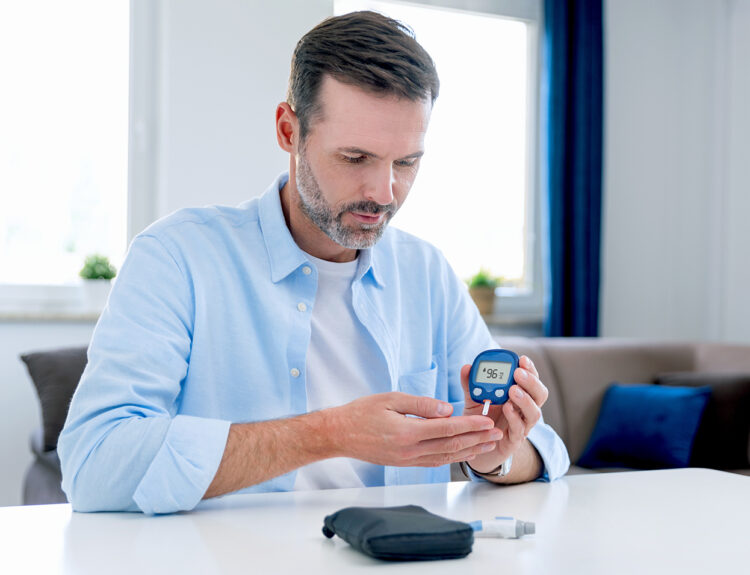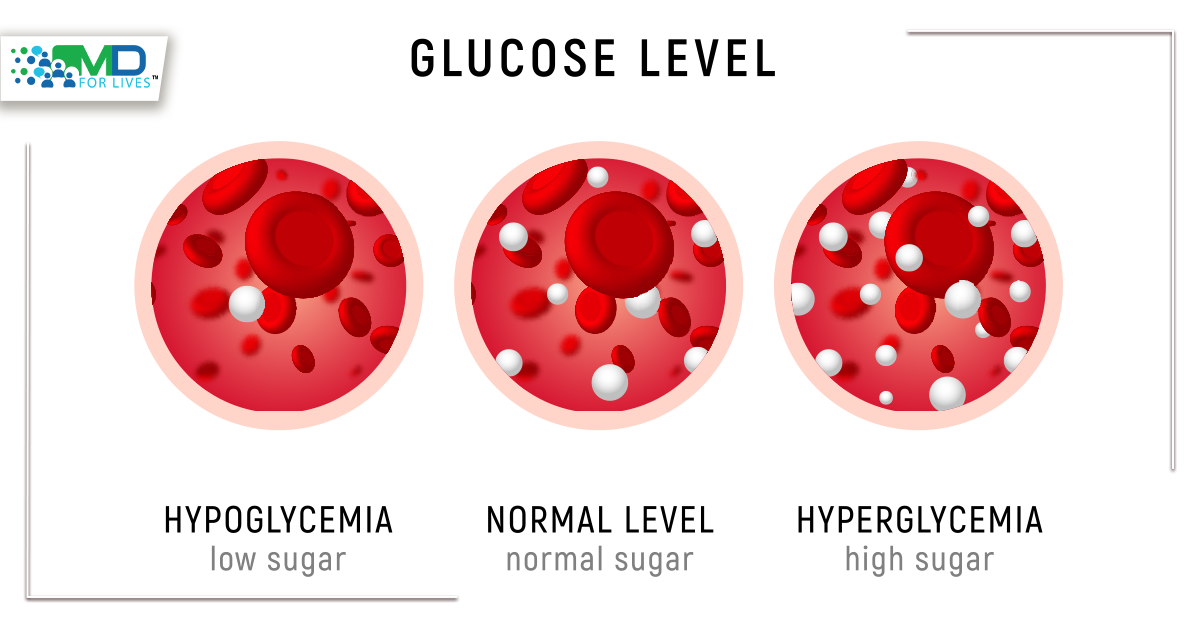“Globally, around 422 million people have diabetes, and 1.5 million deaths are directly attributed to diabetes every year.”
Dr Poonam Khetrapal Singh, WHO Regional Director for South-East Asia
People often talk about cancer like it’s this big, unanswered puzzle, a really tough nut to crack. But, if you take a look at the stats highlighted by the WHO, you might ponder whether diabetes, in comparison, is perceived as less formidable. This contemplation underlines the significance of World Diabetes Day, an annual event that serves as a poignant reminder of the extensive global impact of diabetes. It emphasizes the critical need for comprehensive strategies in both managing and preventing this condition. In the face of this substantial challenge, healthcare professionals – diabetologists, emerge as pivotal figures, guiding individuals toward a pathway of empowered living.
Are you a Diabetes Patient? Your story, your challenges, and your triumphs matter – not just to you, but to the future of diabetes care. Take part in Diabetes Patient Survey here

As guardians of health, physicians possess a unique ability to not only diagnose and prescribe but also to engage in the intricate and nuanced process of effective patient counseling. It is within this dynamic space that the true art of diabetes education manifests. Read this blog to explore the multifaceted strategies that elevate diabetologists from being mere healthcare professionals to educators, equipping patients with the knowledge and skills requisite for navigating the complexities inherent in diabetes self-management.
How to Transform Yourself from a Diabetologist to a Dedicated Educator
If you are a diabetologist who is uncertain about extending your role beyond healthcare, think again. Here are step-by-step guidelines that can seamlessly transform you from a diabetologist to an educator for better patient counseling for diabetes:
Step 1: Understand the Patient
To be successful educators, it’s essential to put ourselves in the shoes of our patients. Dealing with diabetes can be quite overwhelming for them and understanding the ins and outs of the condition might pose challenges.

Start by checking in on their existing knowledge, beliefs and any concerns they might have. Encourage an open and non-judgmental atmosphere where patients feel comfortable expressing their thoughts, fears and questions. This sets the stage for effective communication and ensures that you can tailor your guidance to their specific needs and uncertainties.
Step 2: Provide Personalized Diabetes Education
Each patient is unique, and a one-size-fits-all approach to diabetes education may not yield the best results. Tailor your effective patient counseling sessions to the individual needs, preferences and lifestyle of each patient. Consider factors such as cultural background, literacy levels and access to resources.
Personalization fosters a stronger connection and increases the likelihood of successful behavior change.
Step 3: Set Realistic Goals
Help patients set realistic and achievable goals for managing their diabetes. Break down larger objectives into smaller, more manageable steps. Encourage them to focus on specific aspects of self-management, such as monitoring blood glucose levels, adopting a balanced diet, engaging in regular physical activity and adhering to prescribed medications.

Celebrate small victories to motivate ongoing commitment.
Step 4: Interactive Learning
For better and effective diabetes education, engage patients through interactive learning experiences. Utilize visual aids, interactive apps and other educational tools to enhance understanding. Demonstrate proper techniques for glucose monitoring, insulin administration and other essential tasks. Encourage questions and provide practical solutions to common challenges.
Step 5: Address Their Emotional Well-being
Living with diabetes can be emotionally taxing. Acknowledge all the emotional diabetes symptoms like – stress, anxiety and potential feelings of guilt or frustration. Foster an environment where patients feel comfortable discussing their emotional well-being.

Refer them to support groups or mental health professionals who can deal with the psychological effects of diabetes.
Step 6: Stay Updated on Advancements
As healthcare professionals, staying informed about the latest advancements in diabetes care is essential. Share insights into new technologies, medications and treatment options with your patients.
This not only demonstrates your commitment to their well-being but also empowers them with the knowledge to make informed decisions about their treatment plans.
Step 7: Build a Supportive Network
Encourage patients to build a robust support network that includes family members, friends and diabetes educators. A supportive community can provide emotional encouragement and practical assistance, making it easier for patients to navigate the challenges of diabetes.
Conclusion:

On World Diabetes Day, let us reaffirm the profound impact that physicians make through the art of diabetes education. By comprehensively understanding the patient journey, personalizing education, setting realistic goals, incorporating interactive learning, addressing emotional well-being, staying informed about advancements and fostering a supportive network, you as a diabetologist can empower individuals to take control of their diabetes.
Together, we can not only manage this chronic condition but also pave the way for a future where diabetes no longer holds individuals hostage to its challenges. In this collective effort, MDForLives stands united to nurture wellness and make a lasting impact on the lives of those affected by diabetes.
Diabetologists and fellow physicians, join us in shaping the future of healthcare! MDForLives offers exclusive opportunities for you to participate in paid medical surveys, interviews and discussion forums. Your valuable insights contribute to refining healthcare products, services and treatments. Become a panelist and play a crucial role in advancing the healthcare industry – one survey at a time. Your expertise matters.
References:
- World Diabetes Day: Educate today to protect tomorrow
Source: who.int - How do we counsel our diabetic patients?
Source: pubmed.ncbi.nlm.nih.gov

MDForLives is a global healthcare intelligence platform where real-world perspectives are transformed into validated insights. We bring together diverse healthcare experiences to discover, share, and shape the future of healthcare through data-backed understanding.






